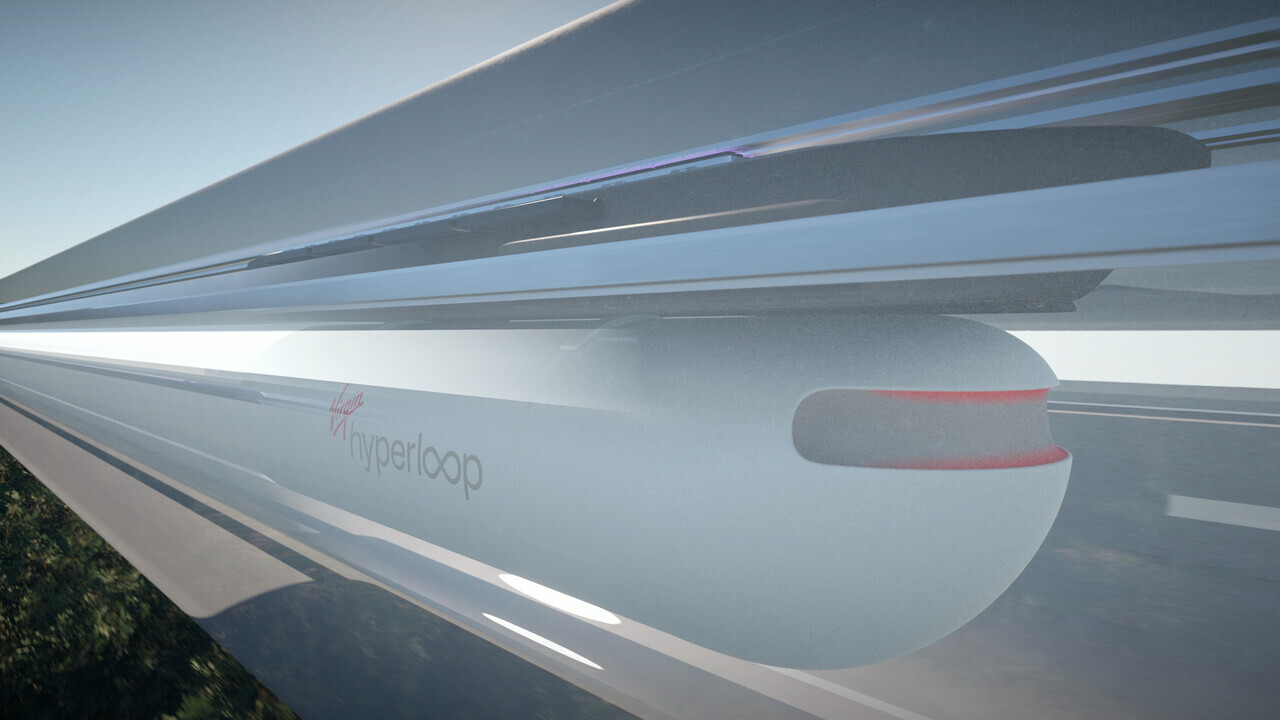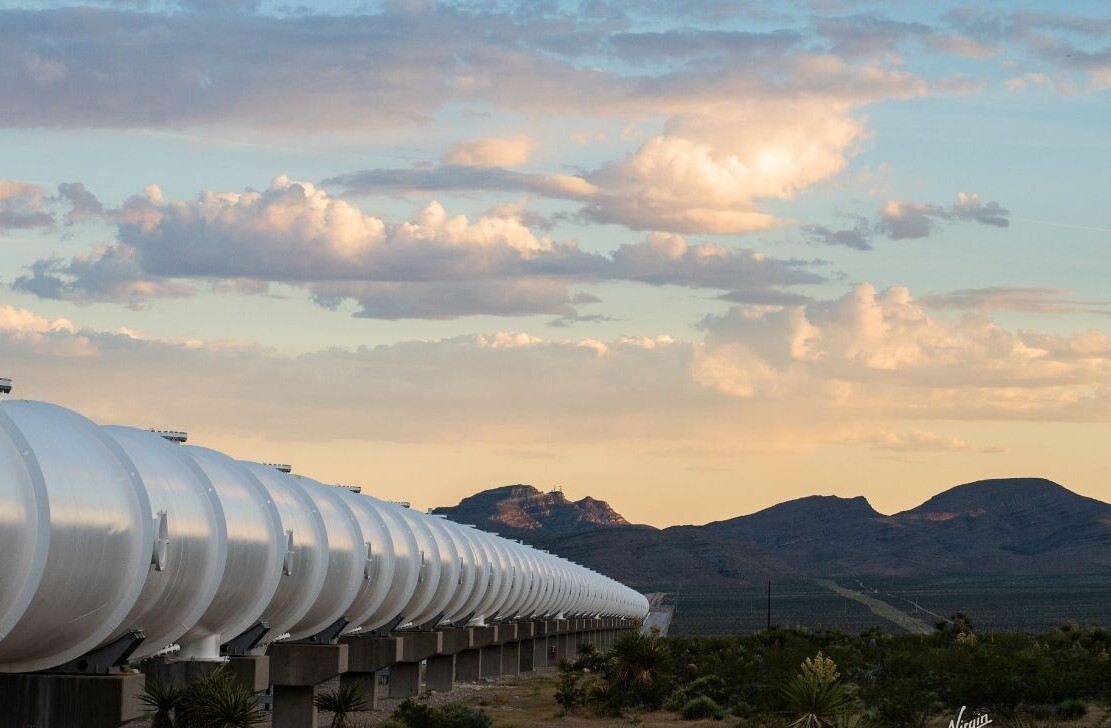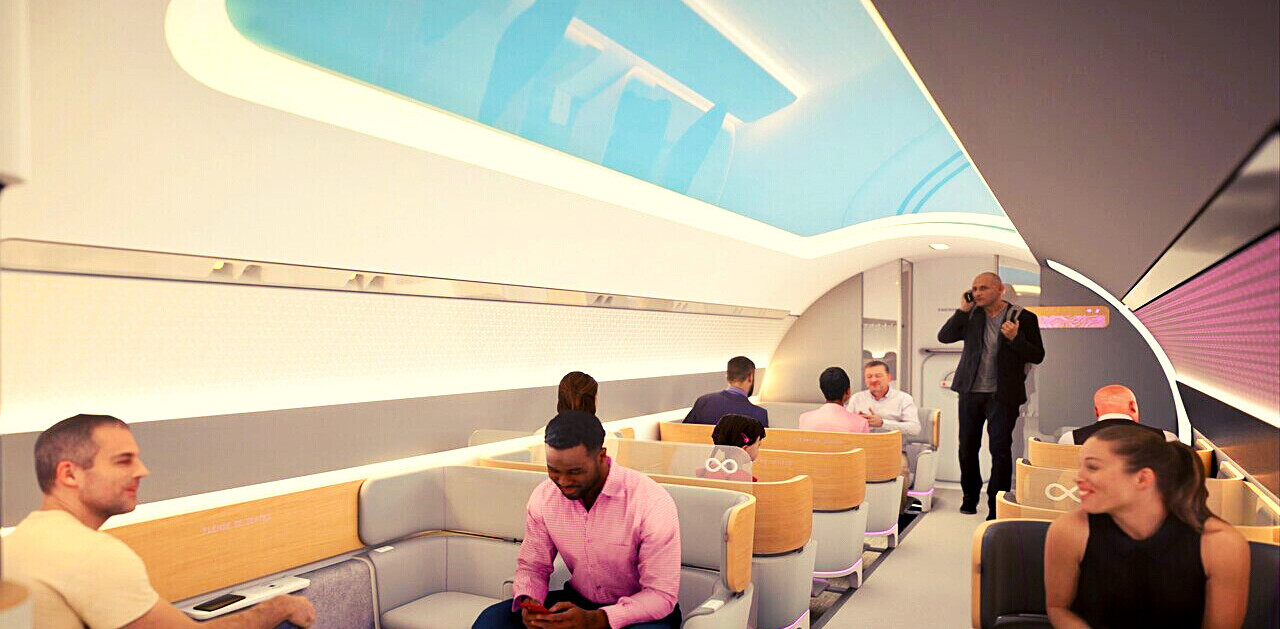
Hyperloop is dubbed the first new mode of transport in over 100 years, and if all things go to plan, companies like Virgin Hyperloop will propel people through the air in pods moving through vacuum tubes.
This week Virgin Hyperloop released a new explainer video on Twitter. While the company sounds excited to get you onboard its ultra-fast trains, you’re in for a long wait before you can strap in for your first ride. Here’s why.
According to Virgin Hyperloop, it starts with a “near-vacuum environment inside a tube” that facilitates high speeds and low power consumption by reducing aerodynamic drag.
People and goods will travel in pods that use “proprietary magnetic levitation and propulsion” to lift and guide pods on a track, and allow several pods to depart per minute across different routes.
#Hyperloop, explained. pic.twitter.com/DSzJpiK9Pg
— Virgin Hyperloop (@virginhyperloop) August 23, 2021
The company asserts:
After building and testing the world’s first hyperloop system, we are now focused on our commercial product. The key to our product is guided by a design that is elegant through its simplicity, future-proof due to its modularity, and guided by principles of this century, not the last.
Future pods will seat up to 28 passengers at speeds of over 1000 km/h — 10 times faster than traditional rail. By comparison, a maglev bullet train launched in China in July only reached 600km/hr. In terms of routes, their focus is Dubai, India (between Mumbai and Pune), and in the US, North Carolina, and Texas. The company claims to have carried out over 500 tests in Las Vegas.

First Virgin Hyperloop passenger test in 2020
Virgin Hyperloop is the only company to test a hyperloop with actual passengers. In November 2020, the company successfully launched a two-seat prototype ridden by two members of staff. The hyperloop traveled 500 meters, reaching 172 kilometers per hour within 6.25 seconds. Ok, the technology works, albeit on a short track and slower than promised. But it’s 6 months since then, and we’ve not seen any longer or faster journeys by Virgin Hyperloop or any of their competitors. What is the real progress?
Hyperloop eligible for US federal funding
This month the US Senate passed the $1.2 trillion bipartisan Infrastructure Investment and Jobs Act. The legislation allows hyperloop companies to compete for federal funding for US-based projects.
This includes hyperloop eligibility for the Consolidated Rail Infrastructure and Safety Improvements and the Advanced Technology Vehicle Manufacturing (ATVM) loan program at the Department of Energy. As a result hyperloop companies will be able to get funding for safety testing and loans for vehicle manufacturing.
So, where’s my pod ride?
As a technology, the hyperloop is still strictly in the R&D phase. Most of the efforts by Virgin’s competitors are strictly in stealth mode.
The video is, in reality, just a CGI rendering of what could be rather than an update of what exists. A sign of hyperloop tech struggling to stay relevant as people focus on autonomous vehicles and flying taxis?
There’s still a considerable way to go in terms of questions of economic viability, legal regulation, scale, interoperability, and whether people are actually willing to travel in almost silent, windowless pods. We’ve been given the plans for an impressive disruption to long-distance travel. But we’re waiting to see proof of long-term viability compared to maglev trains and other high speed rail.
Virgin Hyperloop has set 2027 for the release of the first commercial offering. Whether the world will be ready is the question.
Do EVs excite your electrons? Do ebikes get your wheels spinning? Do self-driving cars get you all charged up?
Get the TNW newsletter
Get the most important tech news in your inbox each week.




